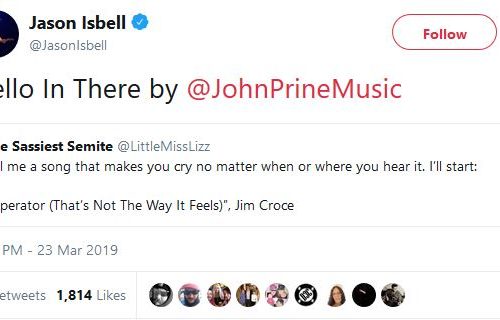The Scottish composer James Macmillan comes from a solidly working class background and used to be a member of the Young Communist League: but he hates being tarred with the contemporary liberal leftist brush.
He explains here why he believes the cultural mores of what passes for the modern left are diametrically opposed to what he always understood socialism meant:
The ‘progressive’ liberalism of the new Left, its destructive atheistic iconoclasm, was miles away from the vision of the early Scottish socialists such as John Wheatley, Manny Shinwell and James Maxton.
The political education I received from old Catholics like my grandfather and even from old Marxists I met at Communist party meetings in the 1970s has made me contemptuous of the simplistic banalities of the modern progressive élites.
They lack intellectual rigour and ethical integrity, their politics are bland and sentimental, their hatred of Christianity is fundamentalist.
He laments the rise in the 1960s of what a growing number of people are now correctly describing as fake-leftism :
A new generation appeared, whose interest seemed less in economic inequality and more in confronting the traditional values of people like my grandfather, whose beliefs had underpinned the very idea of social order.
Marx was giving way to Nietzsche and Freud; Bolshevism was moving over for nihilism.
He also accurately describes what drives too many so called progressives working in the arts today:
…nothing to do with a love of life, a love of the poor or the outsider, but all to do with a love of transgression. It becomes addictive and in the past has led artists as much to the extreme Right as to the far Left. Childish ‘anti-bourgeois’ militancy has no political intelligence or moral fibre.
Witness, for example, Harold Pinter’s descent into infantilism every time he mentions the United States, or for that matter decides to write poetry. Rather than being ridiculed for the embarrassing doggerel-merchant he has become, he is lauded to the highest by his fellow-travellers, easily impressed by easy rhetoric and equally determined to maintain their favoured positions in the back-slapping arts establishment.
He also believes there is a growing number of creative types who are speaking out against the unthinking kitsch-leftism that has become the badge of conformity for so many artists over the past few decades:
There is a growing backlash against this bullying, hectoring and unthinking dogmatism. More and more artists describe themselves as lapsed lefties or recovering liberals. There is a growing resolve to confront a liberal establishment in the Arts, media and elsewhere, responsible for the systematic trashing of much that has been our common heritage, including authentic socialist values handed down from Keir Hardie and others.
Finally he skewers the belief that socialism and nihilism are natural bedfellows:
As an ex-socialist I have seen the aspirations that motivated past generations of good, ordinary people discarded with a contemptuous, superior sneer. As a Catholic artist I am sick of the smug ignorance, the gross oversimplification and caricature that serves as an understanding of religion, particularly Catholic Christianity, in so much that passes for criticism and analysis. The destruction visited on schools and universities, the degradation of the media, the vulgarisation of culture, the deliberate and planned dismantling of the family — all this is a result of liberalism, not socialism.
Expect your dinner party debates to be more lively once people have fully digested your words Comrade Macmillan.



